The transition-to-monthly pay with irregular paydates was completed as of June, 2013, the end of the 2012-13 fiscal year. As of July 1, 2013, all faculty paydates will be on the last banking day of each month. (For the rest of 2013, that is: W, July 31 • F, August 30 • M, September 30 • Th, October 31 • F, November 29 • Tu, December 31.)
For full-timers: Paydates will be spread out evenly, twelve (12) checks per year.
For part-timers: After the transition semester with only four (4) paydates, part-time faculty will receive five (5) checks per semester. Part-time faculty with assignments in both fall and spring should no longer experience a gap between paychecks over the winter holidays
For full-time faculty the District plans to phase in pay-in-arrears by incrementally moving from pay-in-advance to pay-in-arrears between the first pay date of the calendar year 1/2/13 for the pay period running 1/1/13 to 1/31/13 to the pay date 6/28/13 for the pay period 6/1/13 to 6/30/13. That will be the last pay for the current academic year. Part-time faculty will experience a similar transition, beginning in February.
Making this transition from paying at the beginning of the month to paying at the end will require adding a few more days from the succeeding month to each pay period between the beginning of January and the end of June. While it is fully inconvenient to wait about 35 days rather than a month between pay periods, at the end of this academic year, all faculty will have received full pay for this school year. In the academic year 2013-2014, salaries will be paid on the last working day of each month, as is standard among community colleges.
The proposal will save money and staff time, creating a more effective and efficient department and process in an already understaffed area of the College. Payroll will process 12 faculty payrolls per year versus 26, which will save in transactions fees and free up much-needed staff time. It will also help solve reporting problems with CalSTRS, which is based on monthly reporting of faculty earnings. The District spends considerable extra time trying to reconcile biweekly pay with the monthly STRS reporting system, which sometimes results in delays in faculty receiving the correct STRS service credit. The District previously estimated that it could save as much as $450K annually in transaction fees and staff/labor costs by switching to monthly pay. Now, that number may be higher, as errors in STRS reporting are costing the District penalty fees each month.
Twice in the past monthly pay was proposed. The first time, the District offered to pay for the month in advance, something unique but advantageous to the faculty. This would have given faculty the benefit of having the time value of a month’s pay throughout their careers. However, a large number of faculty members objected to the longer wait between paychecks, so monthly pay was not adopted. Last year, with mounting evidence of the problems caused by STRS reporting, the District again proposed monthly pay in advance, but the District’s cash flow was so stretched that after securing AFT’s agreement, the administration rescinded its offer.
As we reported in our Nov. 13 update:
Most faculty will recall that the District and AFT came to an agreement in Spring 2011 to move to monthly pay, only to have the District suddenly reverse course at the final hour due to cash-flow concerns that had not been appropriately considered or vetted in the agreed-upon proposal. In order to make the transition at this point, the District says it must move to pay faculty in arrears. This will also address problems that can easily lead to overpayments to faculty, such as changes in workload due to class cancellations.
Monthly paychecks are obviously larger than biweekly checks. But tax withholding takes into account the length of the pay periods, whether monthly, biweekly or weekly. Other things being equal, the total tax withheld from 12 monthly checks is equal to the total tax withheld from 26 biweekly checks.
Many faculty may wish to adjust their withholdings under the new system and also change certainly deductions. Payroll is planning a number of workshops to assist with these changes and will provide information soon.
In 2011, Payroll manager Don Lind worked out an agreement with the San Francisco Federal Credit Union whereby faculty could have their monthly checks electronically deposited into a checking account on pay day, with half of the check automatically transferred to a savings account, then deposited back into the checking account on the 15th of the month. The savings account would draw a small amount of interest and this setup would offer overdraft protection, arguably an improvement over the current system in case of an emergency. There would be no bank charges for these accounts and transactions. We are told that this convenient arrangement is still available. You may also be able to work out a similar arrangement with your own financial institution; CCSF will split your automatic deposit upon request.
As part of the agreement, the District is offering to expedite corrections of any failure to pay by manually generating an “off cycle” check before the next monthly paycheck. They acknowledge that waiting for up to a month to correct an underpayment is a hardship for employees.
No. The structure moves to pay-in-arrears but does not reduce anyone’s pay. (Of course, the District is trying to do so separately, but the imposition and/or demand for salary cuts is distinct from the monthly pay proposal.)
Initial calculations may appear misleading; however, in order to understand the new system and the transition period, note that faculty this year (and all previous years) receive more than half the year’s pay ahead of schedule, in the previous tax year. (See “How did we end up with the current system?”) Under this new structure, pay-in-advance will even out. This means, unfortunately, that there will be more of a stretch for the initial six months of 2013. Future academic years will be evenly divided, half of pay in each calendar year.
The District initially proposed a greatly-reduced full-time faculty check in December that would have accounted for precisely half of pay for the academic year by December 31, plus a substantial gap of more than five weeks. This was clearly unacceptable. Further negotiations over the proposal led to a “regular” size check on Dec. 18th and a check much earlier in January so that far less of a gap would be experienced. (Part-time faculty, please see above, “How will the Spring 2013 transition-to-monthly pay work?” for the District’s proposal about how you can close the this-year-only gap.)
Monthly pay is the norm. A survey of 13 other districts showed that all paid monthly. Monthly pay-in-arrears appears the standard form of payment in community college districts, and payment after time worked is standard for most payrolls.
Payroll has now agreed to meet consistently and regularly with the Union to solve a growing number of problems, including CalSTRS reporting adjustments, over- and under-payments, and sick day miscalculations. AFT 2121 grievance officers have been trying to solve a backload of cases, and transitioning to monthly pay will enable more effort toward solving these cases. Additionally, we have just been informed that a long-awaited new hire in Payroll has finally been approved, which will create more opportunity to work on fixing problems in a timely manner. If you have an unsolved problem with a Payroll issue and have not yet informed AFT 2121, please email your precinct representative or aft@aft2121.org with details and supply any supporting documents. Our grievance team will add them to the cases to be addressed and work to ensure that they are expedited.
Additionally, Payroll Manager Donald Lind is working to provide faculty with new ways to access information about current pay, load, and assignments online, which sound quite promising.
No other district uses biweekly pay, which has caused severe problems with STRS reporting that cost the District in time and money—and faculty in time and inconvenience—as well as money in retirement when the errors have not been adequately addressed.
The current bi-weekly pay system includes 26 pay dates plus a fraction—and that fraction varies by year. STRS has a special code solely for CCSF in order to facilitate service credit, but even so, the District, AFT 2121, and individual faculty members (both pre- and post-retirement) must frequently spend substantial time and energy in order to ensure that STRS has appropriately calculated faculty service credit. In some cases this process of trying to correct the errors has lasted many months. Moving to monthly pay system will simplify and regularize service crediting, helping ensure accurate retirement information and checks.
And the problem is increasing: this year, STRS has implemented new penalties for over- and under-payments in STRS, and our already cash-strapped District is now leaking additional money to STRS for errors that will be substantially corrected through a more efficient system that aligns with STRS reporting.
After considering a version of the proposal and the pros and cons it represented, the AFT 2121 Delegate Assembly unanimously directed the negotiations team to finalize the proposal and move forward on this timeline. When the Union considered the proposal to move to monthly pay in 2011, we also held discussions at several meetings and conducted a faculty survey that indicated support to make the change.
AFT 2121 recognizes that the transition-to-monthly pay will be difficult and for some faculty a severe inconvenience or hardship, especially given the speedy timeline that does not allow for planning, not to mention the challenges caused by pay already being reduced—and the ambiguity of the District’s unreasonable threats to impose additional, immediate cuts.
The Union and the District have long engaged, together, in “Interest-Based Bargaining,” where the parties look to solve problems together. Finding a solution to problems with the current pay structure, even on this unbelievably short timeline that could have been avoided with earlier engagement, is an example of both parties jointly seeking solutions.
Since most of us do not currently feel that the District is engaged in solving problems at the table and is instead attacking the faculty contract and seeking to impose unacceptable solutions, it naturally raises questions about why the Union would agree to this change in method of pay.
AFT 2121 is not opposed to changes that will ultimately create savings and efficiencies or lead to more effective systems at the College, even inconvenient ones, when they do not further downgrade employment standards or the quality of our programs.
After considering a version of the proposal and the pros and cons it represented, the AFT 2121 Delegate Assembly unanimously directed the negotiations team to finalize the proposal and move forward on this timeline. When the Union considered the proposal to move to monthly pay in 2011, we also held discussions at several meetings and conducted a faculty survey that indicated support to make the change.

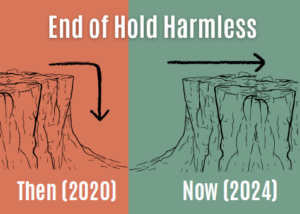
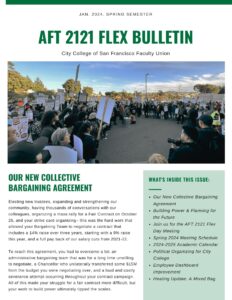
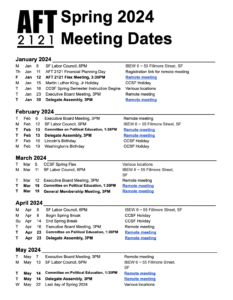
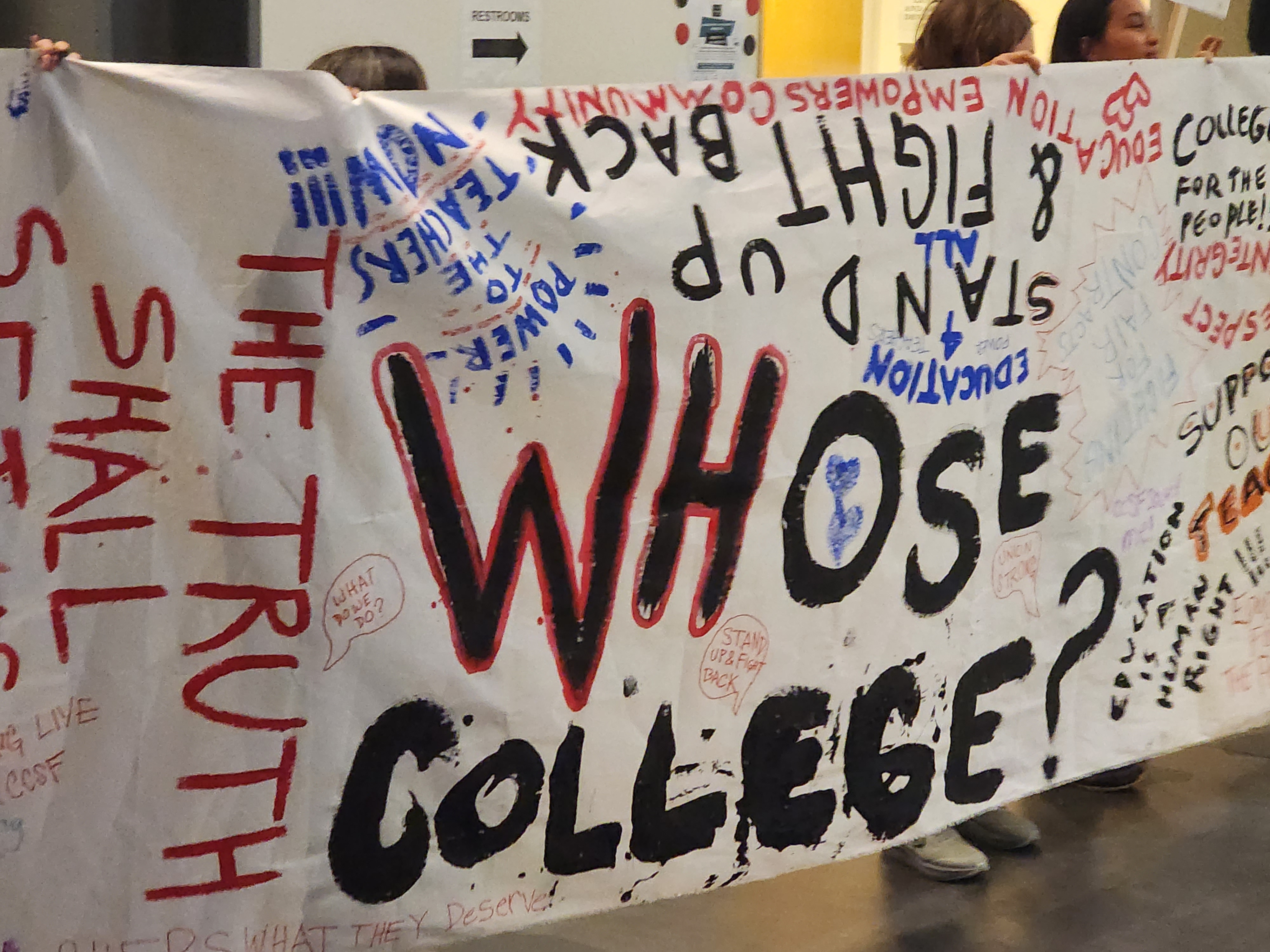
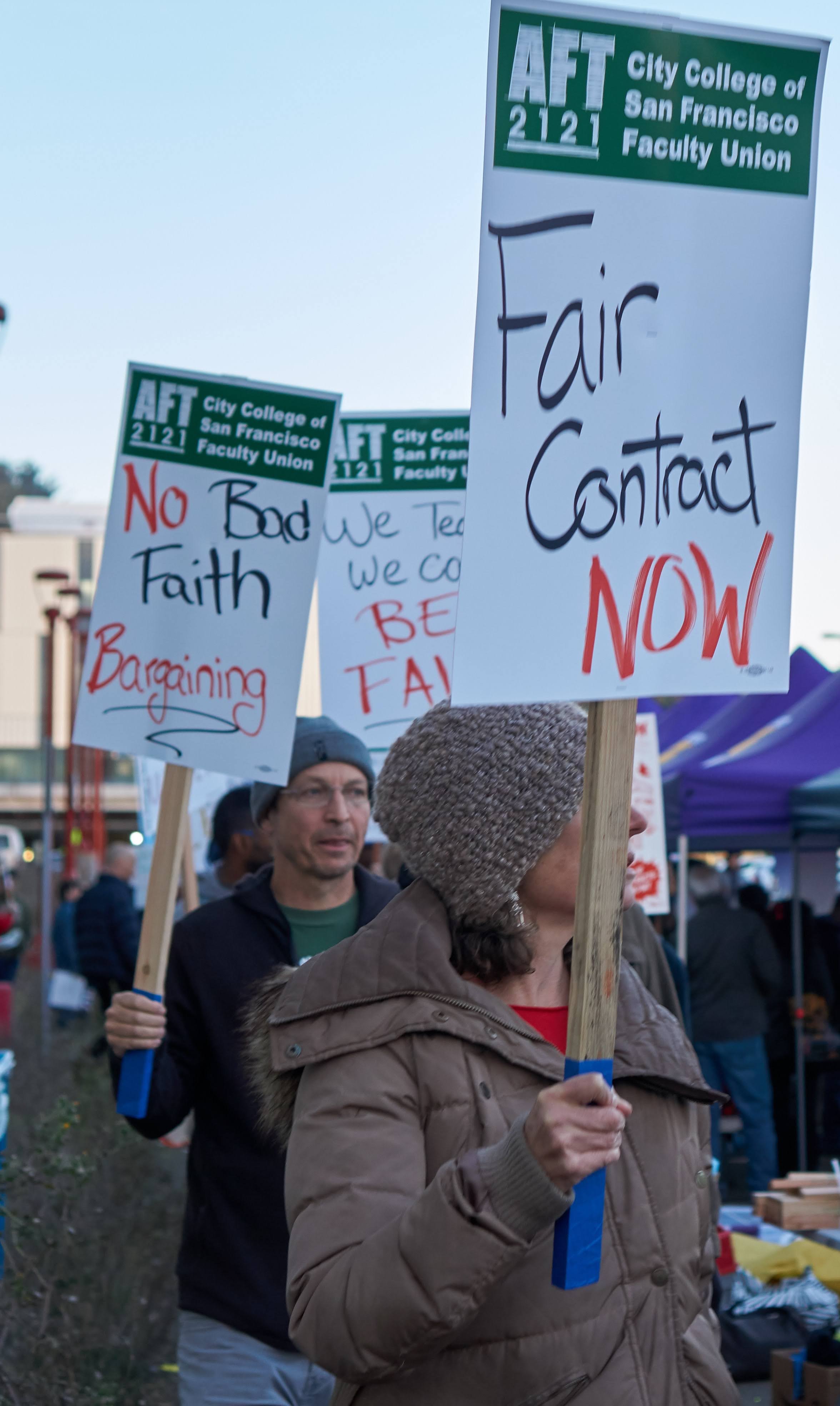
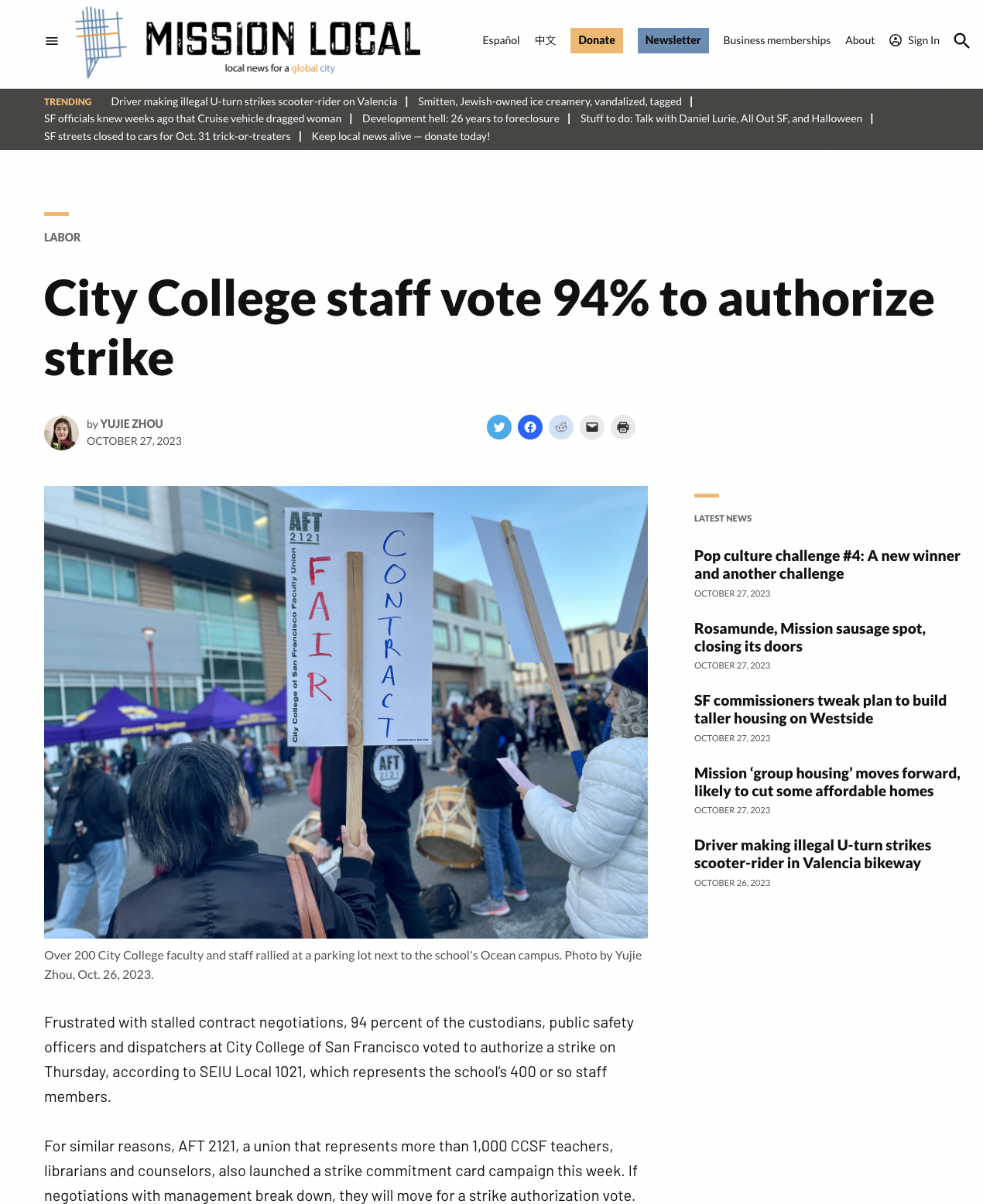
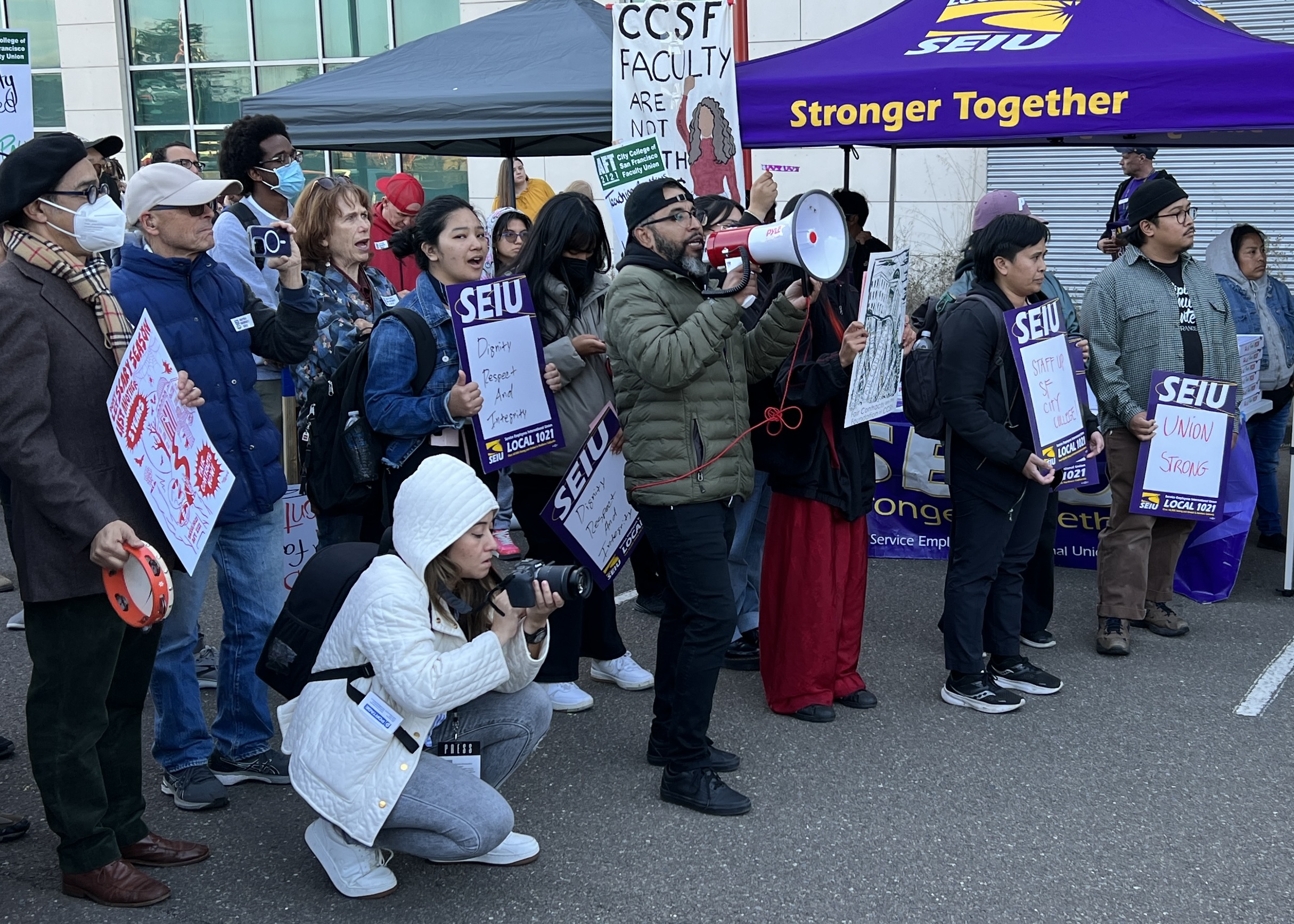
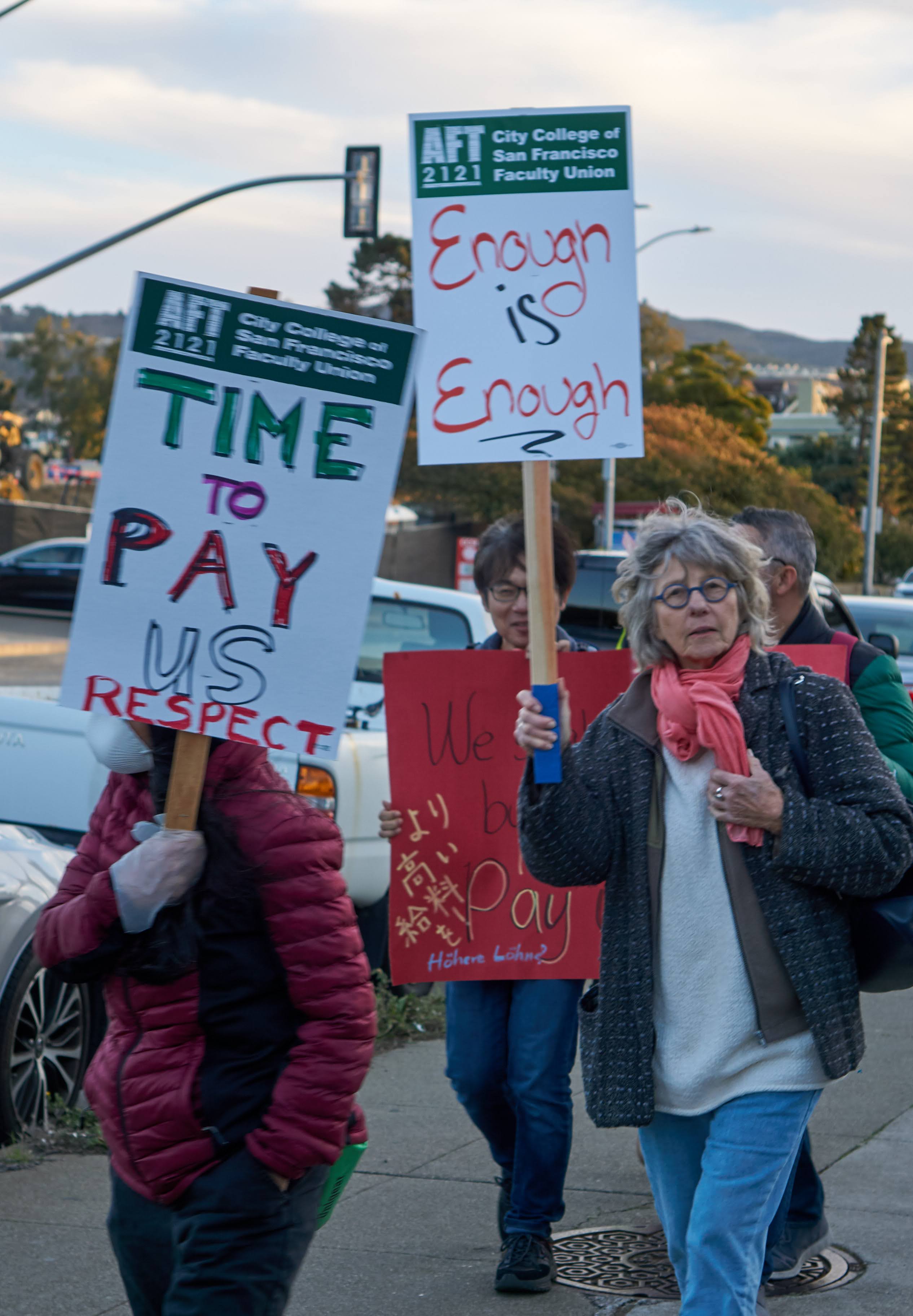
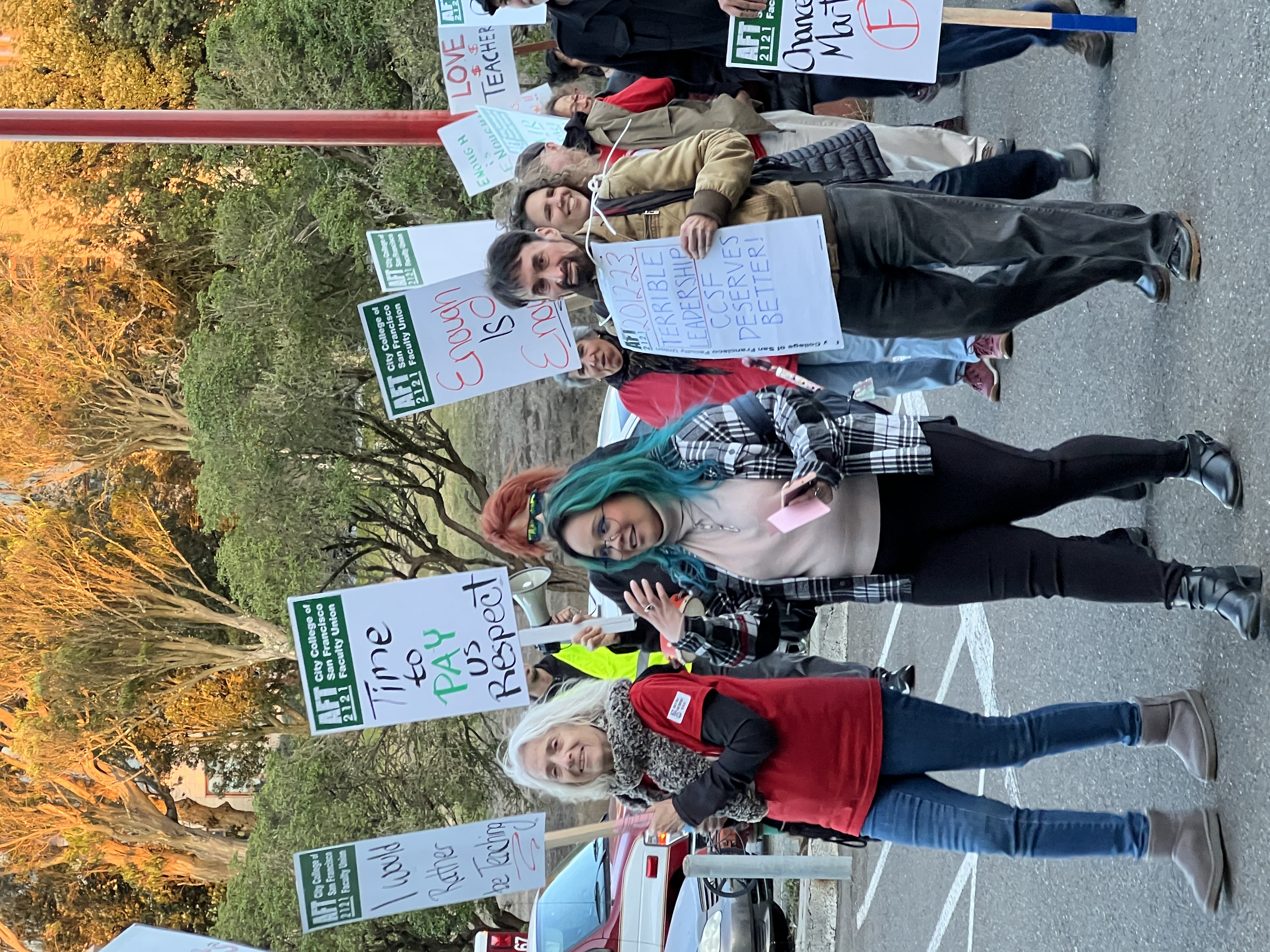
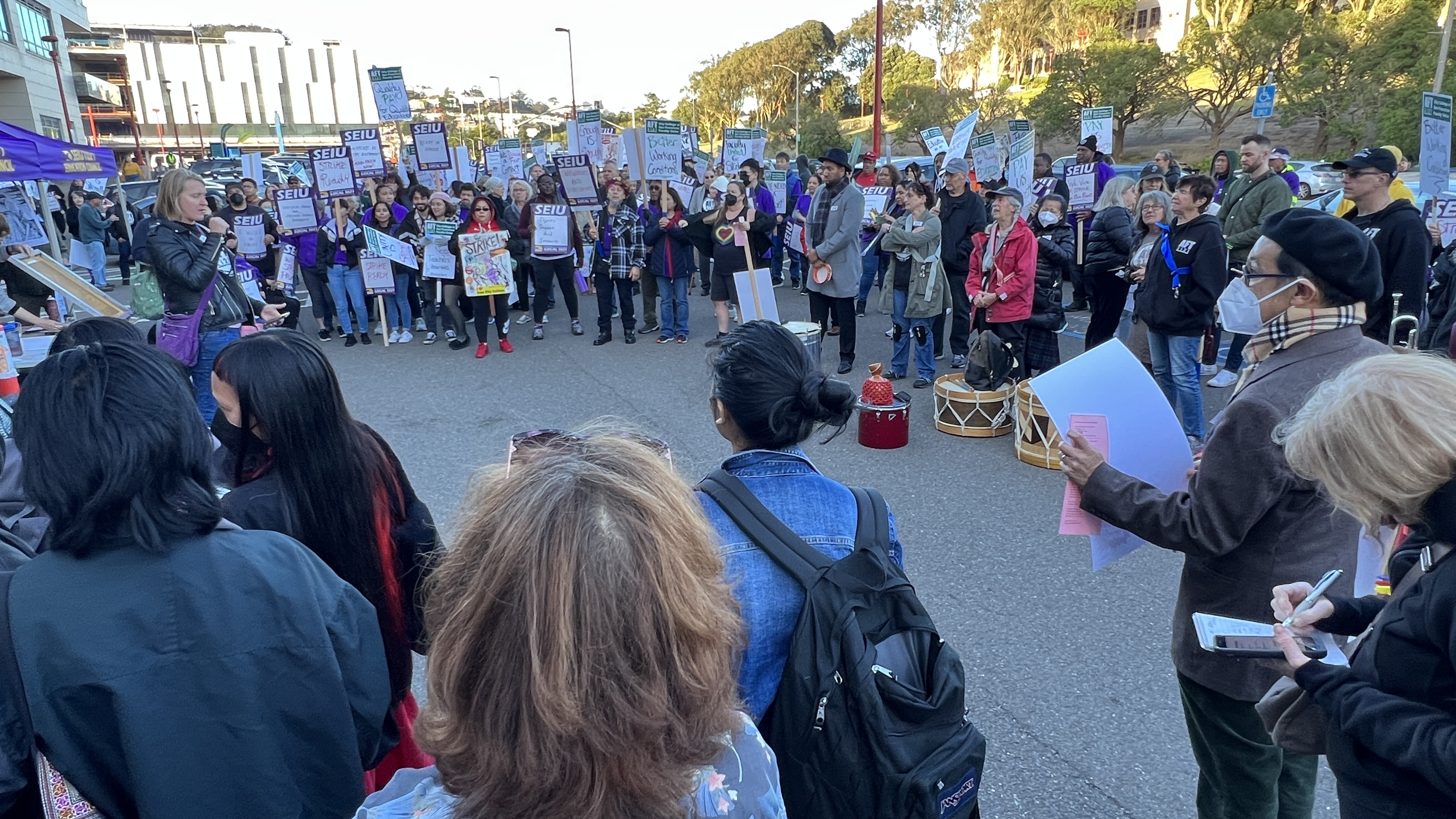
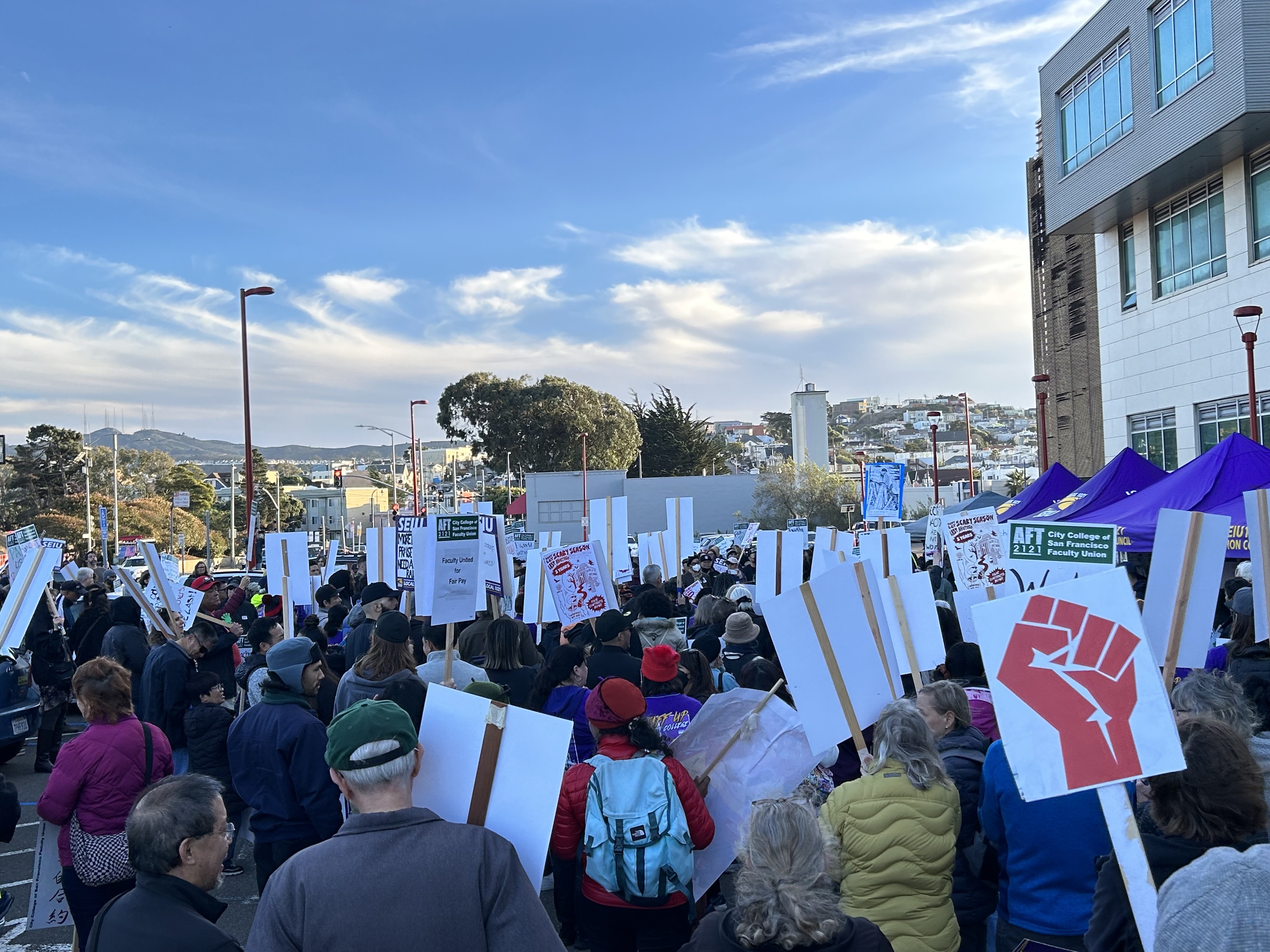
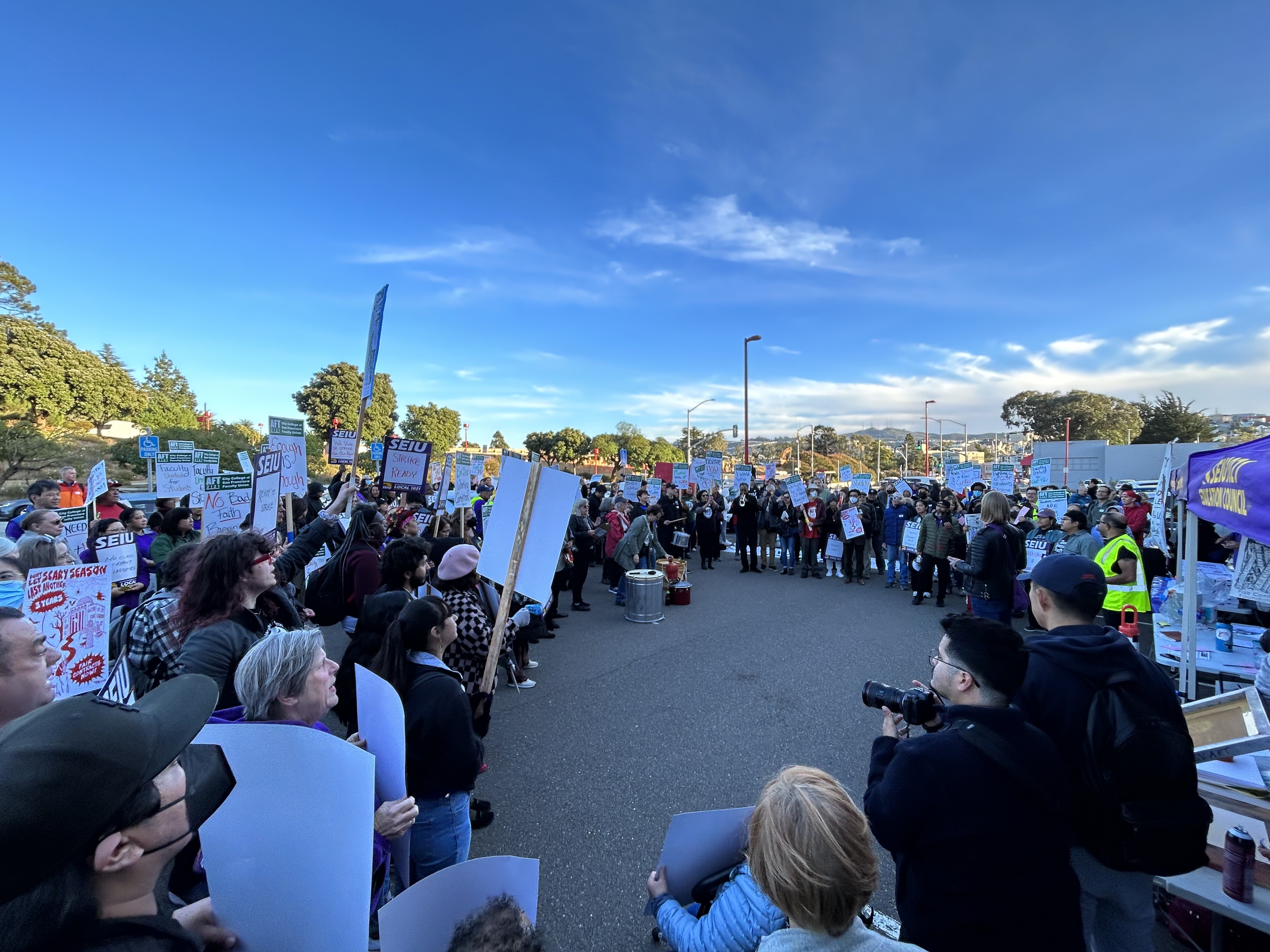
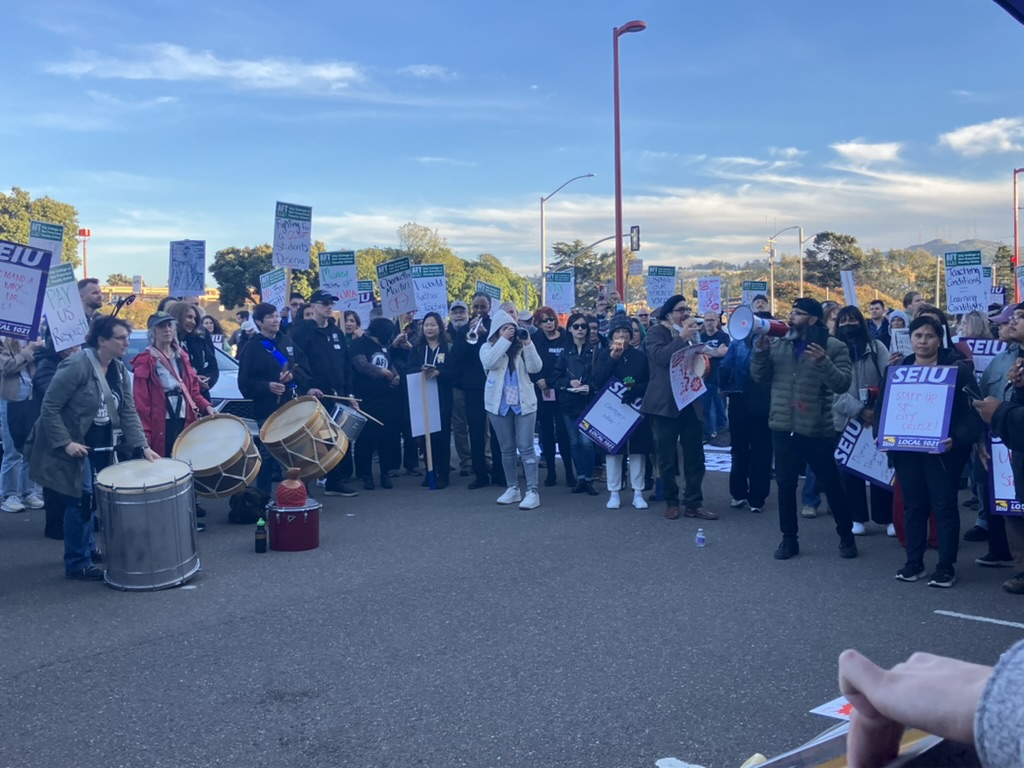
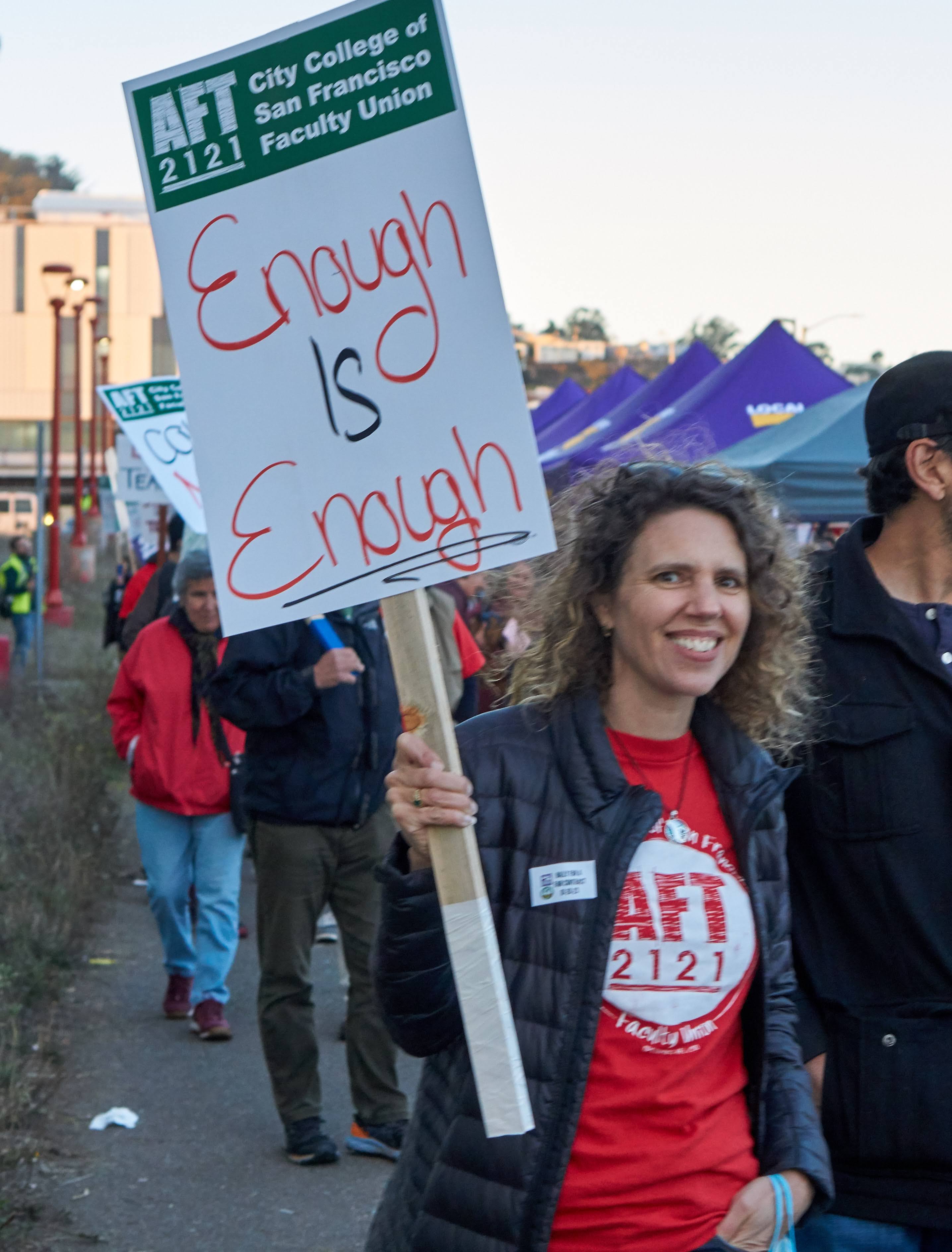

Follow Us!